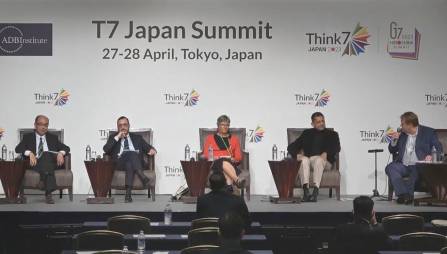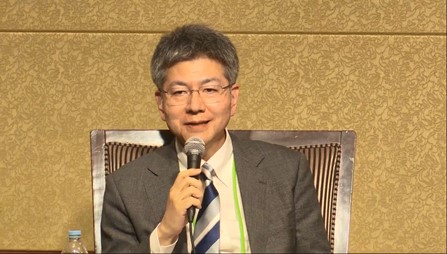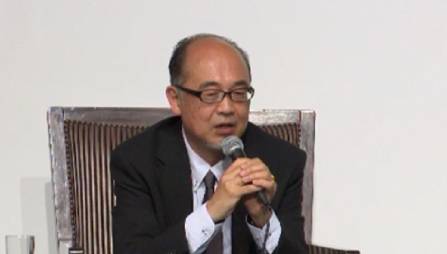Think7 (T7) Japan Summit: “Addressing Crises, Reigniting Sustainable Development, Bridging the G7 and G20”
2023.07.05
The Think7 (T7) Japan Summit was held on April 27 and 28, 2023, as a gathering of the official think tank engagement group of the G7, chaired by the Asian Development Bank Institute under Japan's 2023 G7 presidency. The event showcased a collection of proposals crafted by experts hailing from G7 countries and beyond. The aim of these proposals is to assist in policy discussions at the G7 Hiroshima Summit, which took place between May 19 and 21, 2023, as well as in the future.
One key highlight of the T7 Japan Summit was the emphasis on promoting greater collaboration between the G7 and the Global South, as well as bridging G7-G20 action. The summit also featured panel discussions on pressing topics such as Ukraine's reconstruction, gender-equitable economic growth, disarmament, and non-proliferation, among others. Overall, the T7 Japan Summit sought to foster constructive dialogue and encourage international cooperation in addressing shared challenges.
The outputs of the summit seek to provide solutions to a variety of global issues, including 1) development and economic prosperity, 2) wellbeing, environmental sustainability, and just transition, 3) science and digitalization for a better future, and 4) peace, security (including human security), and global governance. Among the participants were current Executive Director Mine Yoichi and former Executive Director Takahara Akio of the JICA Ogata Sadako Research Institute for Peace and Development (JICA Ogata Research Institute), and leading experts and policy officials.

Panelists at the session “Peace, Security, and Global Governance”
Takahara, who is a T7 Japan Advisory Board member, took part in a session titled “A Matter of Peace: Security in a World of Polycrises and Interconnections.” He expanded on the origins of the concept of human security and the historical stages that contributed to the current understanding of the concept. The concept of human security has been around for more than three decades and is centered around preserving the lives, livelihoods, and dignity of people. The idea first emerged in the wake of the Cold War when the threat of nuclear war loomed large, which was quickly replaced by serious internal ethnic conflicts that had been suppressed during the Cold War. The concept was then introduced as an innovative approach to focusing on humans rather than states, and it aimed to free people from fear and want while preserving their dignity. He added that today’s compounded crises, including violent extremism, internal armed conflicts, natural disasters, climate change, and infectious diseases, pose a threat to human security, drawing on the cases of Myanmar and Sudan.

Takahara Akio, former executive director of the JICA Ogata Research Institute
Moreover, he explained that geopolitical conflicts and wars between nations threaten human security, as seen in Ukraine, where people's lives, livelihoods, and dignity are being destroyed brutally, and there is a possibility of the use of nuclear weapons. Therefore, the preservation of national security is a prerequisite for realizing human security, and mechanisms for the check and balance of power based on established rules and shared ideas are imperative for human security.
In closing his remarks, Takahara focused on how crucial it is to remember the atrocious consequences of the use of nuclear weapons, as evidenced by the tragedies of Hiroshima and Nagasaki, which occurred 78 years ago. Holding more international conferences and summit meetings in those two cities could remind people of how science can go wrong and how brutally it can destroy people's lives, livelihoods, and dignity in unimaginable ways. Therefore, upholding and strengthening the Treaty on the Non-Proliferation of Nuclear Weapons (NPT) by increasing transparency and accountability through regular national reports submitted by the NPT states parties, especially the five nuclear weapon states, is essential.
Mine participated in a task force session titled “Peace, Security, and Global Governance.” He discussed the concept of human security by demonstrating the evolution of the “traditional” security agenda, typically associated with the state’s act of protection against military aggression, into today’s “non-traditional” interconnected threats like environment, energy, food, health, economy, violent conflicts, etc. The concept of human security shifted the referent object of security from states to individuals. In addition to the state’s significance as an essential security provider, he added that the multiplicity of security providers, including business enterprises, civil societies, religious communities, municipalities, schools, family and friends, requires greater coordination and cooperation among them as stakeholders of human security.

Mine Yoichi, executive director of the JICA Ogata Research Institute
By introducing UNDP’s 2022 special report titled “New Threats to Human Security in the Anthropocene”, Mine discussed the impact of human security threats on human development through demonstrating the drop in the global Human Development Index two years in a row for the first time on UNDP’s record. The diverse and abrupt nature of human security threats elucidates the importance of resilience among communities through a dynamic process that includes prevention and preparedness, response to a crisis and eventually, recovery. He also said that “state security is not enough”, and finding complementarities between state security and community, national and international levels is indispensable, highlighting the importance of non-state actors’ role as security providers.
Mine concluded his presentation by saying that G7 and G20 are playing more important roles, although not being reflected in the international laws, thus, there is a growing necessity to reform the United Nations accordingly. He also called for adequate representation of the Global South in the Security Council.

事業事前評価表(地球規模課題対応国際科学技術協力(SATREPS)).国際協力機構 地球環境部 . 防災第一チーム. 1.案件名.国 名: フィリピン共和国.

事業事前評価表(地球規模課題対応国際科学技術協力(SATREPS)).国際協力機構 地球環境部 . 防災第一チーム. 1.案件名.国 名: フィリピン共和国.

事業事前評価表(地球規模課題対応国際科学技術協力(SATREPS)).国際協力機構 地球環境部 . 防災第一チーム. 1.案件名.国 名: フィリピン共和国.

事業事前評価表(地球規模課題対応国際科学技術協力(SATREPS)).国際協力機構 地球環境部 . 防災第一チーム. 1.案件名.国 名: フィリピン共和国.

事業事前評価表(地球規模課題対応国際科学技術協力(SATREPS)).国際協力機構 地球環境部 . 防災第一チーム. 1.案件名.国 名: フィリピン共和国.
scroll